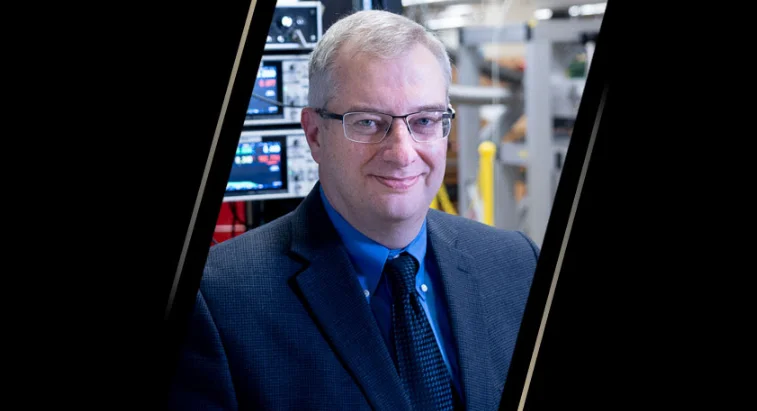Insider Brief
- Connecticut is committing $121 million to QuantumCT to accelerate the state’s quantum technology development, workforce training, and commercialization efforts.
- The investment will launch a New Haven-based QuantumCT incubator that provides co-working space, labs, engineering facilities, and quantum testbeds for startups and industry.
- Yale and UConn are expanding major quantum research infrastructure, reinforcing Connecticut’s long-term plan to position itself as a national leader in quantum science and next-generation technologies.
- Photo by Steve Johnson on Unsplash
PRESS RELEASE — Governor Ned Lamont today announced new investments in Connecticut’s quantum technology infrastructure, workforce, and research capacity – a keystone moment in the state’s plan to fully capitalize on the economic opportunities created by next-generation technologies.
The State of Connecticut is pledging $121 million to QuantumCT, the nonprofit organization that serves as the statewide coordinating body for advancing quantum technologies and convening industry and early-stage innovators, academia, and the public sector. The funds will strengthen Connecticut’s already robust leadership in the emerging quantum economy by accelerating technology development, workforce training, and commercialization.
QuantumCT is the result of a landmark partnership between Yale University and the University of Connecticut that was launched in response to the National Science Foundation’s Regional Innovation Engines program. Yale and UConn are also working in partnership with the state to advance Connecticut’s quantum ecosystem, including recent investments of over $1 billion to expand quantum infrastructure.

“Connecticut is at the forefront of quantum technologies, due to the pioneering research conducted at our academic institutions and a culture of innovation that thrives in the state,” Governor Lamont said. “For generations, Connecticut has built the world’s most advanced engines, helicopters, and submarines – technologies that protect and save lives. Now, through quantum innovation, Connecticut has an opportunity to enhance that legacy and lead in emerging fields like cybersecurity, drug discovery, and advanced computing.”
Today’s investment will support the launch of the QuantumCT incubator, a fully functional deep-tech hub in New Haven. This first-of-its-kind facility will combine co-working and lab space with engineering and materials characterization capabilities, quantum testbeds, and onsite technical expertise.
“This investment allows Connecticut to stand up world-class research capacity — not someday, but now,” Albert M. Green, president and CEO of QuantumCT, said. “By building an incubator alongside advanced prototyping and engineering facilities, we are giving startups and industry the ability to design, validate, and iterate new quantum technologies in real time. The QuantumCT incubator will position Connecticut as a destination for deep tech experimentation and breakthrough development.”
Through investments in quantum technology, workforce development, and partnerships across government, industry, and academia, Connecticut is strengthening its position as a world-class destination for global talent and a top choice for companies seeking to build and scale in the United States. Building the next generation of quantum technologies, Connecticut is helping to lead the nation in unlocking groundbreaking discoveries and innovations across critical industries, including aerospace and defense, financial services, and life sciences.
UConn has embraced quantum research for decades and has added state-of-the-art infrastructure to support its mission. In 2023, UConn opened major facilities aligned with quantum technologies, including the “Science 1” building on the main campus in Storrs. The facility offers highly advanced laboratories, including clean room facilities, needed to advance quantum materials and applied quantum research.
Yale is investing in a new science and engineering complex to support initiatives in quantum science, engineering and materials research, instrumentation development, and the Yale Quantum Institute. The Upper Science Hill Development complex is one of the largest capital commitments in Yale’s history, totaling more than 600,000 gross square feet.
Connecticut’s leadership in quantum innovation builds on two decades of deeply influential research and global impact at Yale University, where Professors Robert Schoelkopf, Steven Girvin, and Michel Devoret pioneered circuit quantum electrodynamics (cQED) and the transmon qubit – fundamental technologies that now power today’s quantum computing ecosystem. Those breakthroughs not only reshaped academic inquiry but also created a talent pipeline that feeds global leaders such as IBM, Google and dozens of quantum startups.
Devoret was recently awarded the 2025 Nobel Prize in Physics for his foundational contributions to quantum information science.
“Innovation is in Connecticut’s DNA. This level of investment in the state’s innovation ecosystem will create thousands of high-skill, high-wage jobs and sends a clear message that Connecticut is ready to lead in this new frontier of economic development,” Daniel O’Keefe, commissioner of the Connecticut Department of Economic and Community Development, said. “By concentrating on quantum technologies and AI applications in sectors where Connecticut already excels – bioscience, advanced manufacturing, and financial services – the state is laying the foundation for long-term growth and opportunity.”
“The future of Connecticut’s workforce depends heavily on our ability to embrace quantum by maximizing our research capacity and teaching important skillsets to students and workers of all ages,” Pamir Alpay, UConn’s interim provost, said. “Governor Lamont, Commissioner O’Keefe, and our state leadership recognize the need to invest in future foundational technologies like Quantum. UConn has been a leader in translational research across the state across critical sectors that build our quantum capital and technological output. Together with state government, Yale, and many other partners, UConn welcomes its role in helping develop a Connecticut quantum ecosystem.”
“Our collective investments represent a forward-looking commitment to Connecticut’s leadership in innovation,”
Michael Crair, vice provost for research at Yale University, said. “By bringing together universities, industry, and the state, we’re building an innovation ecosystem that creates opportunity across Connecticut. These resources will train the next generation of scientists and engineers, spark new businesses, and ensure that the benefits of quantum technologies are felt in our communities.”
This approach ensures that state investment not only accelerates innovation but also builds a homegrown workforce capable of powering Connecticut’s leadership in emerging technologies for decades to come.














